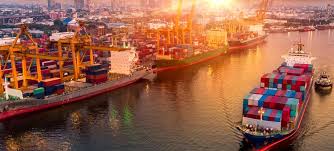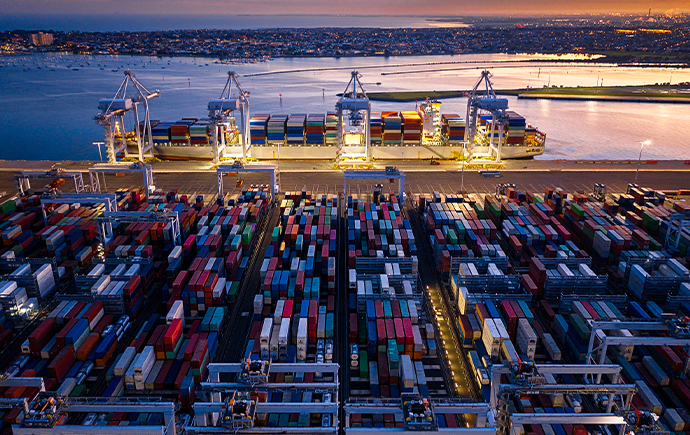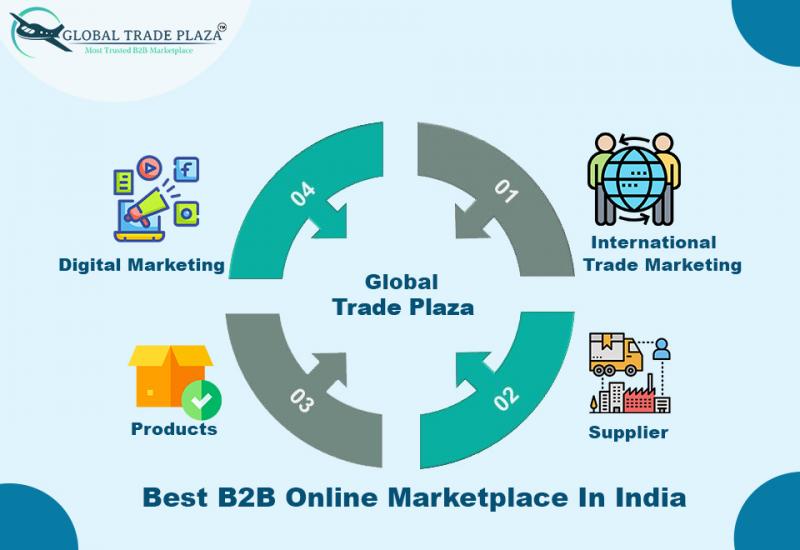The Future of International Trade: Trends and Opportunities
The world of international trade is undergoing a dynamic transformation. Technological advancements, shifting consumer preferences, and geopolitical considerations are all reshaping the global trade landscape. As businesses navigate this evolving environment, understanding emerging trends and identifying potential opportunities is crucial for success. Here, we delve into some of the most significant trends that will define the future of international trade:
1. The Rise of E-Commerce: The exponential growth of e-commerce is fundamentally altering international trade. Cross-border online shopping is booming, fueled by factors like rising internet penetration, mobile technology adoption, and the convenience of online marketplaces. This trend presents immense opportunities for businesses to reach global audiences, expand their customer base, and streamline sales processes.

2. The Power of Data: Data is becoming the lifeblood of international trade. Businesses are leveraging big data analytics to gain valuable insights into consumer behavior, market trends, and supply chain logistics. This data-driven approach allows for informed decision-making, personalized marketing strategies, and efficient resource allocation.
3. The Evolution of Supply Chains: Global supply chains are becoming more complex and geographically dispersed. Businesses are seeking innovative solutions to optimize logistics, mitigate risks, and ensure the sustainability of their supply chains. This includes exploring options like nearshoring (sourcing from geographically closer locations) and leveraging technology for real-time tracking and inventory management.
4. The Focus on Sustainability: Consumers are increasingly demanding sustainable products and ethical sourcing practices. Businesses that prioritize sustainability throughout their supply chains, from eco-friendly packaging to responsible labor practices, will gain a competitive edge.
5. The Emergence of New Trade Agreements: The traditional model of large-scale trade agreements is evolving. We are witnessing an increase in regional trade agreements and a growing emphasis on digital trade regulations. Businesses need to stay informed about these evolving trade policies to adapt their strategies and capitalize on new opportunities.
6. The Role of Artificial Intelligence (AI): AI is poised to revolutionize international trade. AI-powered solutions can automate tasks like customs clearance, trade finance, and risk management, improving efficiency and reducing costs. Additionally, AI can personalize customer experiences and optimize pricing strategies across different markets.

7. The Blockchain Revolution: Blockchain technology offers immense potential for improving transparency and security in international trade. Blockchain can streamline tracking and documentation of goods throughout the supply chain, reducing fraud and facilitating faster customs clearance.
8. The Geopolitical Landscape: Shifting geopolitical alliances and trade tensions can significantly impact international trade flows. Businesses need to be adaptable and prepared to navigate potential disruptions by diversifying their markets and supply chains.
Business and Life Transformation – Training Guide 1 –![]()


Areas of Growth and Innovation:
These trends highlight several promising areas for growth and innovation in international trade:
- Cross-Border E-commerce Platforms: Developing user-friendly and secure e-commerce platforms specifically catering to cross-border trade will be crucial.
- Digital Trade Facilitation: Streamlining digital trade regulations and promoting secure digital payment methods will be essential for fostering global e-commerce growth.
- Sustainable Supply Chain Solutions: Businesses that develop innovative solutions for sustainable sourcing, packaging, and logistics will be well-positioned to meet growing consumer demand.
- Data-Driven Trade Strategies: Leveraging data analytics to optimize pricing, marketing, and logistics will be key for success in the competitive global marketplace.
- AI-Powered Trade Solutions: Investing in AI-powered solutions to automate tasks, personalize experiences, and manage risks will offer a significant competitive advantage.

Conclusion:
The future of international trade is brimming with possibilities. By embracing emerging trends, prioritizing innovation, and adapting to changing market dynamics, businesses can harness new opportunities and thrive in the globalized world. Staying informed, adaptable, and committed to responsible trade practices will be key to success in the years to come.

